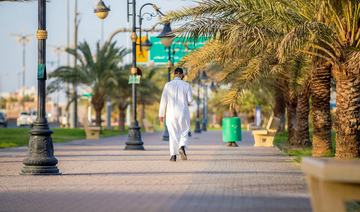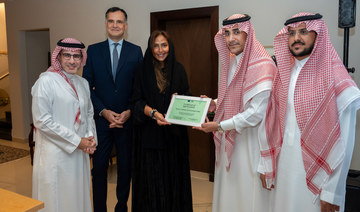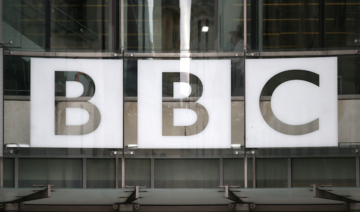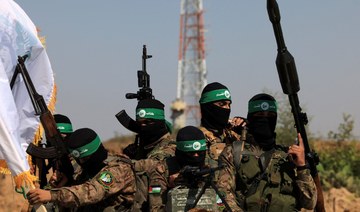DUBAI: Publishers in the Arab world unpacked the impact of the COVID-19 pandemic on their industry in a virtual conference on Tuesday.
During a panel discussion titled “News media business after print?”, as part of the Media Leaders eSummit, they analyzed how the health crisis changed the scene for publishers in the Middle East.
Abdulsalam Haykal, chairman of Majarra in the UAE, mentioned several ways in which the changes to media content were brought about.
“It forced people into solitude,” he said. “So that new mindset and framework of ‘working from home’ elevated technology to a position of a partner. It was a strategic tool we used, but now it’s a partner we rely and depend on, so life happens now through technologies.”
This change also brought about a new need for instant information and knowledge among consumers. For Haykal, a collaborative approach emerged towards combating the pandemic, with a need to understand their role in that approach.
“We wanted to know how other people were dealing with it, the skillset and the tools, and to learn as we lived through it,” he said.
COVID-19 also presented the case for faster adoption of online business models that made room for new upgrades in technology infrastructure, specifically in the Middle East and North Africa, and introduced new practices such as the subscription business model.
According to Haykal, these elements combined present a golden opportunity for publishers in the region to look to subscription models.
However, he added that any move in that direction will require a great degree of trust between publisher and consumer.

“Trust in our business is to have information, knowledge and news that are reliable, to have a user experience so that people can move through that knowledge and information smoothly and consistently,” he said.
“(It) is necessary for us, as publishers and content creators, to elevate our own content and user experience to that level as well.”
He said that news is a commodity around the world, and many publishers are looking to move beyond just the news and allow consumers to understand what it means for their lives, giving consumers the entire online news and analysis experience through brand association with different organizations.
“The challenge is people compare us with any app where they have a better experience,” he said.
“The expectation from the online world is much higher. This is a chance for every publisher, in the region specifically, to make that leap into what is almost a white space.”
Mohamad K Alayyan, chairman and publisher of Al-Ghad Newspaper in Jordan, said the modern world is a village where “everything is out there” and comparison has become easy for consumers. This challenge, he added, has forced publishers to step up their game.
“The wake-up call from COVID-19 is that print no longer pays the bills, it can no longer sustain us and help us thrive in this sector,” Alyayyan said.
“But what helps us is having a brand that’s known for good quality content. No matter what, the need for quality content remains strong — people want good quality content and that’s where the starting point should be.”
Using good quality content and brands will help organizations overcome any disruption in technology.

Alyayyan’s said newspaper currently has a plan in place for such a transformation by diversifying its revenue through advertising and television.
“That’s only to make up for the lost revenue from the paper,” he said. “Then we went online, and we joined old publishers in Jordan in selling online advertising. After we secured the least damage in what COVID-19 has done to the revenue of the paper, now we have to look at what paywall we should do.”
The group is looking at where its data can help advise on readers’ preferences. This review, he believes, will set the foundations for a paywall’s starting point.
For Ahmad Al-Hammadi, CEO of press sector at Dubai Media Incorporated in the UAE, the link between COVID-19 and the media is very complicated, as the pandemic changed the media industry in its entirety, along with its behaviors and products.
“Three or four years ago, we were saying that one day, the newspaper will disappear and what would we do and going to the next stage technology wise,” he said.
“The question was there, and we weren’t taking any action. Suddenly, COVID-19 came to us, and we said we had to go through the experience, even if you don’t succeed.”
DMI halted newspaper printing during the pandemic, following more than 40 years in the market. Although it faced some difficulties, the DMI team believed it could reach the next stage and manage itself.
“But the revenue was totally dead,” Al-Hammadi said. “You cannot compare the revenue, which is the fuel of the company. Our digital platform is number one in the market here in our category by far, but COVID-19 changed all of our mindsets in the company.”

He said, however, that revenue from digital in the region is not to the level publishers are looking for, adding that some of the difficulties the market is facing is people’s mindset, media training centers that are lacking maturity, a lack of copywriters and insufficient revenue.
For Al-Hammadi, paid content is necessary for success and the group is currently in the process of following that path.
“All these obstacles are there, and people are trying to change,” he said.
“The industry is mature enough; we have to have a plan and not blame ourselves or each other. We have to try to solve the formula — everybody is trying, people are on the right track if they believe digital is yesterday, not the future.”


























